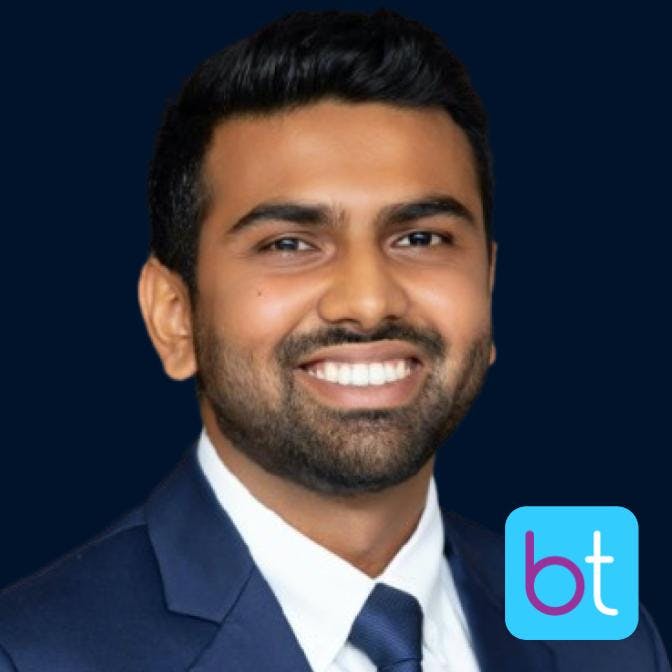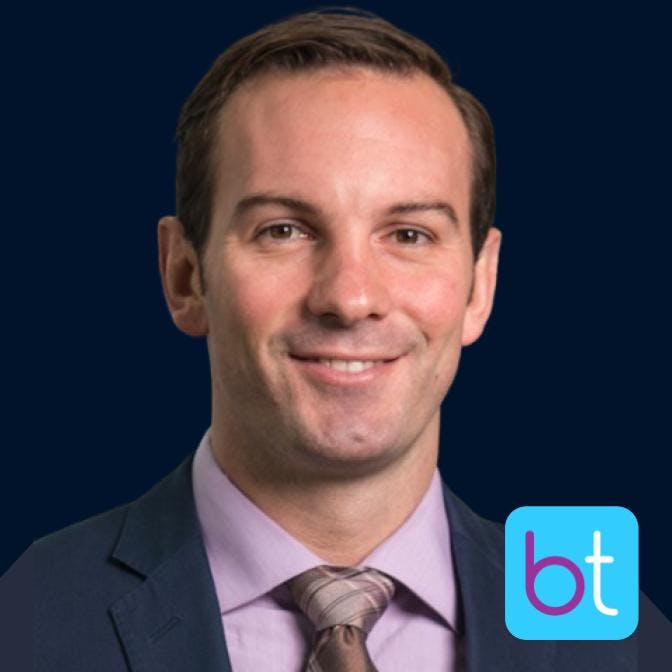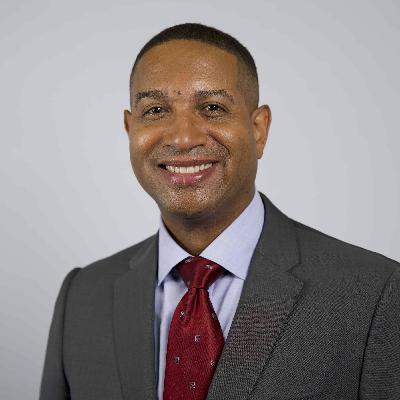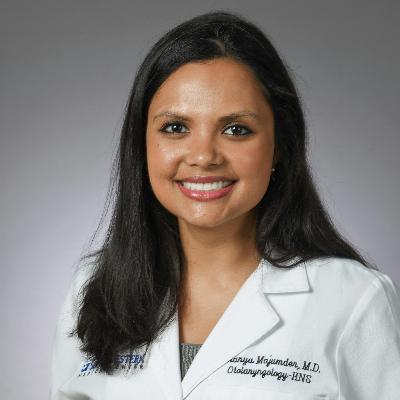Discover BackTable ENT
BackTable ENT

BackTable ENT
Author: BackTable
Subscribed: 47Played: 2,327Subscribe
Share
© All rights reserved
Description
The BackTable ENT Podcast is a resource for otolaryngologists to learn tips, techniques, and practical advice on all things ear, nose, and throat. Tune in to the BackTable ENT Podcast every week for candid conversations about rhinology, laryngology, otology, and head and neck surgery.
251 Episodes
Reverse
Are you a med student with an upcoming away rotation? Get a head start with this episode of the BackTable ENT Podcast. Dr. Viraj Shah, a PGY-4 ENT resident at UT Southwestern and guest host Dr. Quynh-Chi Dang, PGY-1 at UC Davis Medical Center, discuss how to succeed on away rotations.
---
SYNPOSIS
They cover the basics of away rotations, factors to consider when applying, and effective strategies for excelling both in the operating room and within the residency team. Additionally, they delve into the importance of networking, securing recommendation letters, and making a positive impression through situational awareness and preparation. Personal anecdotes and practical tips make this a valuable listen for medical students gearing up for their rotations.
---
TIMESTAMPS
00:00 Introduction 02:33 Diving into Away Rotations05:20 Factors to Consider for Away Rotations22:54 Handling Away Rotation Offers28:33 Succeeding in the OR34:30 Navigating OR Dynamics40:49 Securing Recommendation Letters46:11 Onsite Interviews: Preparation and Presentation50:48 Housing for Away Rotations56:03 Final Tips: Observing Team Dynamics and Being Proactive
---
RESOURCES
Chi Danghttps://health.ucdavis.edu/otolaryngology/our-team/residents.html
Viraj Shah https://www.utsouthwestern.edu/departments/otolaryngology/education-training/residency-program/residents/
From misdiagnosed asthma to anxiety-related breathing issues, inducible laryngeal obstruction is often hiding in plain sight. In this episode of the BackTable ENT Podcast, Dr. Steven Sims from Rush University Medical Center discusses contemporary care for inducible laryngeal obstruction (ILO) with guest host Dr. Stephen Schoeff.
---
SYNPOSIS
The discussion elaborates on the evolution of the nomenclature surrounding vocal cord dysfunction and the clinical challenges in diagnosing and managing ILO. Dr. Sims shares his approach to patient evaluation, various presentations, and targeted treatment strategies, including the use of neuromodulators, speech pathology, and nerve blocks. He also delves into trauma-informed care, particularly focusing on patients with adverse childhood events and their impact on laryngeal function. The episode highlights the importance of an interdisciplinary approach, especially the role of speech pathologists in treating this complex condition.
---
TIMESTAMPS
00:00 - Introduction 01:39 - Understanding Inducible Laryngeal Obstruction04:53 - Patient Presentation and Evaluation07:51 - Management Strategies and Patient Care09:06 - Trauma and Mental Health Considerations19:27 - Interdisciplinary Approach and Additional Testing23:52 - Understanding Subglottic Stenosis and Asthma27:08 - The Role of Botox in Treatment31:49 - Biofeedback and Patient Empowerment34:25 - Exercise-Induced Laryngeal Obstruction39:05 - Advanced Treatment Approaches and Challenges41:06 - Conclusion and Final Thoughts
---
RESOURCES
Dr. Stephen Schoeff https://www.enthealth.org/find-ent/stephen-s-schoeff/
Dr. H, Steven Sims https://doctors.rush.edu/details/22035
When treating head and neck cancer, how can you tell the difference between true disease progression and pseudoprogression? In this episode of the BackTable Podcast, we discuss the practical implementation of the KEYNOTE-689 trial published in the New England Journal of Medicine, which demonstrated the benefit of adding neoadjuvant and adjuvant immunotherapy to standard head and neck cancer care. Our tumor board panel includes Dr. Mihir Patel, a head and neck surgeon from UNC Chapel Hill, Dr. Siddharth Sheth, a head and neck medical oncologist from UNC, Dr. Jennifer Johnson, a professor of medical oncology and otolaryngology at Sidney Kimmel Comprehensive Cancer Center, and Dr. Adam Luginbuhl, a head and neck surgical oncologist at Thomas Jefferson University.
---
SYNPOSIS
The doctors address the trial's practical implications, patient selection, case management, dealing with tumor progression, and the integration of multidisciplinary care. They also emphasize the importance of communication, real-world application of trial protocols, and the potential benefits and challenges of such therapies.
---
TIMESTAMPS
00:00 - Introduction03:18 - Discussing the New Indication for Immunotherapy11:42 - Challenges and Practical Implementation22:48 - Managing Tumor Progression: A Case Study28:07 - Exploring Treatment Options: Surgery vs. Chemotherapy36:46 - Operational Challenges and Future Directions43:58 - Concluding Thoughts and Future Directions
---
RESOURCES
Keynote 689https://www.nejm.org/doi/full/10.1056/NEJMoa2415434
If your patients still struggle with sleep apnea after other treatments, it might be time to look at the nose. In this episode of the BackTable ENT Podcast, otolaryngologist and facial plastic surgeon Dr. Scott McCusker joins hosts Dr. Gopi Shah and Dr. Ashley Agan to discuss the impact of nasal airway obstruction on obstructive sleep apnea (OSA).---This podcast is supported by:Aerin Medicalhttps://aerinmedical.com/---SYNPOSISDr. McCusker shares insights on his practice, evaluation techniques for nasal obstruction, and the use of minimally invasive procedures like VivAer. The conversation covers the importance of the septal swell bodies, the effectiveness of nasal treatments on OSA outcomes, and patient management strategies, including when to combine different surgical interventions. The episode also touches on post-operative care and the potential role of new technologies and treatments in enhancing patient outcomes.---RESOURCESDr. Scott McCusker https://ambrdfcs.org/doctors/scott-mccusker-md/
While the standard for adjuvant head and neck cancer treatment hasn't changed since 2004, a new trial using perioperative pembrolizumab is forcing clinicians to rethink their entire workflow, starting with diagnosis. In this episode of the BackTable Podcast, head and neck surgical oncologist Dr. Adam Luginbuhl is joined by colleagues Dr. Dylan Roden and Dr. Ravindra Uppaluri to discuss the implementation and implications of the Keynote-689 trial, which introduced neoadjuvant and adjuvant immunotherapy for locally advanced head and neck cancer.---SYNPOSISThe doctors discuss the trial details, FDA approval, and practical challenges of integrating this new paradigm into clinical practice. The conversation covers critical points such as the necessity of CPS score testing, timely drug administration, patient monitoring, and the importance of collaboration among multidisciplinary teams.---TIMESTAMPS00:00 - Introduction02:18 - Keynote-689 Trial Explained04:42 - Implementation Challenges and Strategies06:40 - Practical Considerations for CPS Testing13:59 - Case Studies and Real-World Applications30:48 - Future Directions and Final Thoughts---RESOURCESKeynote-689https://www.nejm.org/doi/full/10.1056/NEJMoa24154342004 Cisplatin Phase III Trialhttps://www.nejm.org/doi/full/10.1056/NEJMoa032646
Endoscopes, AI, and the future of ENT care—otolaryngologist and Presidio CEO Dr. Jonathan Simmonds shares why the tech game is just getting started in this episode of the BackTable ENT Podcast.---SYNPOSISDr. Simmonds shares his journey from the UK to becoming a sinus surgeon in New York, and the founding of Presidio to create affordable endoscopic equipment. They discuss how AI can transform ENT practice, emphasizing the unique position ENTs hold due to their routine use of camera systems in exams. The conversation also tackles the economic aspects of implementing new technology, the importance of capturing clinical data, and the necessity of ENT specialists to advocate for their role in the evolving landscape. Dr. Simmonds offers insights into the various AI tools and the significance of contributing to the development and implementation of AI models in ENT.---TIMESTAMPS00:00 - Introduction03:38 - AI in ENT: Opportunities and Challenges12:46 - Protecting the Role of ENTs17:26 - The Future of ENT Exams24:41 - Ownership of Medical Data: The Ethical Dilemma 30:09 - Human-Like Behavior in AI Models31:18 - The Role of AI in ENT Practice34:30 - Challenges and Opportunities in AI Implementation42:12 - Economic Considerations for AI in Private Practice45:03 - Final Thoughts and Future Directions---RESOURCESDr. Jonathan Simmondshttps://www.summithealth.com/doctors/provider/1538549936
When should a parotid mass raise red flags? In this episode of the BackTable ENT podcast, Dr. Mirabelle Sajisevi, head and neck surgeon at the University of Vermont Medical Center, joins hosts Dr. Gopi Shah and Dr. Ashley Agan to discuss her approach to diagnosing and managing parotid malignancies. ---SYNPOSISDr. Sajisevi shares insights from her practice, including the importance of thorough physical exams, the utility of ultrasound and biopsy, and the intricacies of surgical planning. They also cover post-operative care, the role of radiation and chemotherapy, surveillance strategies, and the potential of emerging treatments and technologies.---RESOURCESDr. Mirabelle Sajisevi https://www.uvmhealth.org/providers/mirabelle-sajisevi-md
We’re keeping the chronic rhinitis conversation going in this week’s episode of BackTable ENT. Otolaryngologist Dr. Greg Davis joins Dr. Ashley Agan and Dr. Gopi Shah to break down his approach to posterior nasal nerve (PNN) ablation with the NeuroMark Gen 3, including patient prep, anesthesia, technique, and postoperative care.---This podcast is supported by:Neurent Medical http://neuromark.com/---SYNPOSISBeyond his posterior nasal nerve ablation technique, Dr. Davis shares his experiences with the various generations of the NeuroMark device, and also discusses the insurance and billing side of its use. The conversation also touches on topics like eustachian tube dysfunction, chronic cough, and the future of chronic rhinitis treatment.---TIMESTAMPS00:00 - Introduction03:04 - NeuroMark Device Trials04:15 - Patient Presentation and Diagnosis11:50 - Medical Management and Treatment Options21:44 - Procedure Setup and Anesthesia Protocol30:49 - Understanding RF Devices and Their Usage31:13 - Deploying the Device for Turbinate Treatment31:52 - Tips and Tricks for Difficult Anatomy33:58 - Posterior Nasal Nerve Ablation in the OR34:40 - Addressing Posterior Nasal Drainage and Chronic Cough36:51 - Impedance Control vs. Temperature Control RF38:02 - Choosing the Right Device for Patients40:52 - Managing Post-Procedure Care and Risks53:18 - Insurance and Billing56:13 - Final Thoughts and Future Directions---RESOURCESDr. Greg Davis https://www.gregdavismd.com/ 10th International Otolaryngology Underwater Update Coursehttps://ssf.cloud-cme.com/course/courseoverview?P=0&EID=1254
So many patients deal with a runny, stuffy nose every day, and sprays only go so far. Let’s talk about what’s new for chronic rhinitis. In this episode of the BackTable ENT podcast, Dr. Dennis Tang, a Rhinologist at Cedars-Sinai Medical Center discusses chronic rhinitis and the latest treatment advancements with hosts Dr. Gopi Shah and Dr. Ashley Agan. ---This podcast is supported by:Aerin Medicalhttps://aerinmedical.com/---SYNPOSISDr. Tang discusses the benefits of posterior nasal nerve (PNN) ablation and the recent approval of the procedure by Cigna Insurance, which expands accessibility for patients. The conversation covers the typical presentation of chronic rhinitis, the procedural details, patient selection, preoperative and postoperative care, and billing considerations. Dr. Tang also touches on the anatomy involved and the technological innovations that are enabling contemporary rhinitis treatment.---TIMESTAMPS00:00 - Introduction03:01 - Insurance Coverage for Posterior Nasal Nerve Ablation04:23 - Patient Presentation, Diagnostic & Treatment Approaches11:07 - Posterior Nasal Nerve (PNN) Ablation Explained17:57 - Physical Examination and In-Office Procedure20:47 - Allergy Patients and Immunotherapy22:21 - Chronic Rhinosinusitis vs. Chronic Rhinitis32:33 - Radiofrequency Ablation Technology39:49 - Procedure Techniques and Anatomical Considerations46:42 - In-Office Procedure Logistics01:06:10 - Final Thoughts ---RESOURCESDr. Dennis Tanghttps://www.cedars-sinai.org/provider/dennis-tang-3316614.html
Is there a different way to do an Intracapsular tonsillectomy without using a microdebrider or a Coblator? In this episode of the BackTable ENT Podcast, otolaryngologist Dr. Evan Tobin from Ohio ENT and Allergy Physicians sits down to discuss the intracapsular technique for tonsillectomy with hosts Dr. Gopi Shah and Dr. Ashley Agan. ---SYNPOSISDr. Tobin shares his journey and practice in Ohio, emphasizing his transition to using intracapsular tonsillectomy with monopolar electrocautery. The discussion covers the historical evolution of tonsillectomy techniques, the benefits of intracapsular tonsillectomy (such as reduced bleed rates and postoperative pain), as well as the practical aspects and indications for different methods. Dr. Tobin presents his technique in detail, supported by video demonstrations and highlights the significance of patient counseling in making surgical decisions.---TIMESTAMPS00:00 - Introduction 04:38 - Tonsillectomy Techniques07:20 - Evolution and Debate of Tonsillectomy Practices11:09 - Personal Experiences and Techniques in Tonsillectomy21:42 - Pain Management and Post-Operative Care29:51 - Shared Decision Making and Future of Tonsillectomy34:53 - Managing Bleeds: A Practical Approach37:51 - Cost Analysis of Tonsillectomy Techniques41:46 - Surgical Techniques and Settings53:06 - Post-Operative Considerations and Outcomes57:33 - Final Thoughts and Recommendations---RESOURCESDr. Evan Tobinhttps://www.ohioentandallergy.com/physicians/evan-tobin-md/
What every ENT needs to know about the resurgence of measles—and how to talk to patients about vaccines. In this episode of the Back Table ENT podcast, Dr. Romaine Johnson and Dr. Daniel Chelius, both pediatric otolaryngologists, talk about the resurgence of measles and vaccine hesitancy with host Dr. Gopi Shah.
---
SYNPOSIS
They delve into their professional backgrounds, the importance of recognizing symptoms early, and the risks associated with measles, such as otitis media and sensorineural hearing loss. The conversation highlights the role of ENT specialists in identifying and managing the disease, strategies for addressing vaccine hesitancy, and the broader public health implications. They also touch on ways the medical community can tackle misinformation and advocate for vaccinations through collective efforts and patient education.
---
TIMESTAMPS
00:00 - Introduction
07:07 - Measles Contagion and Symptoms
23:23 - Complications and Long-term Effects
28:37 - Assessing Respiratory Status and Complications
29:44 - Addressing Common Vaccine Myths
31:18 - Challenges in Vaccination Conversations
32:38 - Personal Stories and Impact of Vaccination Choices
35:00 - Building Trust and Addressing Concerns
38:15 - Approaching Non-Vaccination in Clinical Practice
53:12 - Global Perspective on Vaccination
54:17 - Final Thoughts and Contact Information
How to help children with ear deformities look and feel their best. In this episode of the BackTable ENT Podcast, Dr. Jason Qian from Rady Children's in San Diego and special guest Dr. Charlotte Célérier, a pediatric otolaryngologist at Neckar-Enfants Malades Hospital in Paris, France discuss the technical aspects of pediatric otoplasty with Dr. Gopi Shah. ---SYNPOSISThe conversation covers surgical techniques, patient selection, procedural nuances, and post-operative care for various ear deformities including prominent ears, Stahl's ear, cauliflower ear, and cryptotia. Both experts share their insights on different methodologies, handling complications, and the importance of ensuring the child is motivated for surgery. Learn practical tips and evolving practices in the field of pediatric otoplasty.---TIMESTAMPS00:00 - Introduction 02:22 - Otoplasty Techniques and Patient Referrals05:35 - Terminology and Ear Abnormalities13:16 - Surgical Considerations20:04 - Prepping and Draping for Surgery30:22 - Suturing Techniques33:38 - Instrument Preferences35:12 - Repairing Stahls Ear Deformity37:16 - Cauliflower Ear Challenges38:46 - Cryptotia Repair Techniques40:59 - Post-Operative Care and Managing Complications52:30 - Final Thoughts and Innovations---RESOURCESJason Qian:https://www.rchsd.org/doctors/zhen-jason-qian-md/Charlotte Célérier:https://www.researchgate.net/profile/Charlotte-Celerier
Hyperbaric oxygen is out and surgical innovation is in—here’s how the rescue flap is reshaping ORN care. Facial plastic and microvascular surgeons Dr. Ariel Frost and Dr. Eli Gordin join host Dr. Ashley Agan to discuss osteoradionecrosis (ORN) of the mandible.---SYNPOSISThe discussion begins with a detailed overview of the condition and patient presentation, and the impact of radiation therapy. The conversation then delves into historical and contemporary staging systems, highlighting the innovative 'rescue flap' technique developed by Cleveland Clinic. The episode emphasizes the ineffectiveness of hyperbaric oxygen therapy and showcases the superior outcomes and cost-effectiveness of the rescue flap procedure. Practical insights on surgical techniques, patient management, and future directions in treating ORN are also discussed.---TIMESTAMPS00:00 - Introduction 01:26 - Understanding Osteoradionecrosis (ORN)08:49 - Clinical Presentation of ORN13:56 - Diagnosis and Imaging16:58 - Staging and Treatment Options27:39 - Conservative Therapy for ORN37:19 - Understanding Disease Progression and Imaging39:46 - Exploring the Rescue Flap Technique52:46 - Post-Operative Care and Recovery59:20 - Advanced Stages and Bone Grafting01:13:38 - Cost Effectiveness and Referral Guidelines---RESOURCESDr. Ariel Frosthttps://utswmed.org/doctors/ariel-frost/Dr. Eli Gordin https://utswmed.org/doctors/eli-gordin/
Is the advice you’re getting from your mentor really what you need, or is the real breakthrough hidden in your own answers? In this episode of the BackTable ENT podcast, Dr. Gopi Shah welcomes Dr. Stacey Ishman, a chief medical officer, pediatric ENT, real estate investor, syndicator, and career coach for physicians, to discuss transitioning from academic medicine to utilization management. ---SYNPOSISDr. Ishman emphasizes the significance of mentorship and coaching in academic medicine, the difference between the two, and how understanding one's values is crucial for career fulfillment. The conversation addresses common challenges faced by physicians such as setting boundaries, managing time effectively, and achieving work-life balance. Dr. Ishman also shares practical tips for personal and professional growth, encourages networking, and highlights how coaching can help physicians realign their careers with their values. The episode concludes with resources and strategies for physicians feeling burnt out and advice on navigating career transitions.---TIMESTAMPS00:00 - Introduction 03:56 - Mentoring vs. Coaching11:10 - Time Management and Setting Boundaries17:38 - Gender and Equity in Academic Medicine22:18 - Exploring Personal Values23:41 - Time Management Tips for Physicians26:17 - Mid-Career Physician Challenges28:28 - Networking and Self-Promotion30:12 - Translational Skills in Medicine32:04 - Knowing When to Make a Change39:02 - Coaching Programs and Resources---RESOURCESDr. Stacey Ishmanhttps://www.childrensdayton.org/doctors/stacey-ishman-md-mphhttps://www.medicalmentorcoaching.com/
How do we integrate biologics into the existing stepwise treatment model for chronic rhinosinusitis with nasal polyps (CRSwNP)? In this episode, Dr. Reena Mehta, an allergist from Uptown Allergy and Asthma in New Orleans, discusses the use of biologics for treating chronic rhinosinusitis with nasal polyps. ---SYNPOSISDr. Mehta elaborates on the common presentations of patients, the role of biologics such as dupilumab and tezepelumab, and the nuances of patient management post-sinus surgery. Dr. Mehta also covers the workup process, the significance of patient comorbidities like asthma and allergies, and the future perspectives on biologic treatments. Practical aspects of biologic therapy, including insurance hurdles, patient compliance, and the effectiveness of various biologics are thoroughly examined.---TIMESTAMPS00:00 - Introduction 02:27 - Understanding Chronic Rhinosinusitis with Nasal Polyps & Presentation05:22 - Workup and Management of Nasal Polyps07:31 - Treatment Options: Steroids and Biologics15:28 - Tezepelumab: A New Tool in the Toolkit25:03 - Side Effects and Safety of Biologics28:59 - Insurance and Approval Challenges36:14 - Long-Term Safety and Efficacy38:47 - Pediatric Considerations and Future Directions41:37 - Collaboration Between ENT and Allergy Specialists45:07 - Conclusion and Final Thoughts---RESOURCESDr. Reena Mehtahttps://uptownallergyasthma.com/allergist-dr-reena-mehta/
What happens when a high-achieving physician trades perfectionism for purpose? In this episode of the BackTable ENT podcast, Dr. Tiffany Moon, an anesthesiologist, mom, entrepreneur, former Real Housewives of Dallas cast member, and author of the book 'Joy Prescriptions' joins host Dr. Ashley Agan.
---
SYNPOSIS
Tiffany shares her journey from a driven, high-achieving academic physician to exploring new passions outside of medicine. She discusses her midlife crisis, the inspiration behind her book, and the importance of finding joy through gratitude and letting go of perfectionism. They delve into the challenges of balancing a medical career with motherhood, the decision to go part-time, and the impact of her social media presence. Also, Tiffany introduces her upcoming Lead Her Summit, aimed at empowering female entrepreneurs. The episode wraps up with practical insights on maintaining joy and navigating career transitions.
---
TIMESTAMPS
00:00 - Introduction01:37 - Tiffany’s Journey in Medicine03:15 - Writing Joy Prescriptions05:32 - Balancing Medicine and Personal Life12:21 - The Decision to Go Part-Time17:34 - Navigating Career and Personal Goals20:42 - Understanding Joy Interrupted23:05 - Practicing Gratitude in Daily Life25:14 - The Struggle with Control29:57 - Navigating Social Media Fame34:57 - Upcoming Lead Her Summit37:48 - Final Thoughts and Farewell
---
RESOURCES
Tiffany Moonhttps://www.tiffanymoonmd.com/
LeadHer Summit 2025 (use code BACKTABLE300 for $300 off):https://www.leadhersummit.com/
A 47 year old male presents with intermittent, unilateral nasal drainage and headache. What do you do? In this episode of the BackTable Podcast, Dr. Satyan Sreenath, a rhinologist at Indiana University, and Dr. Sanjeet Rangarajan, a rhinologist at Case Reserve University, examine complex cases involving CSF leaks and encephaloceles.
---
SYNPOSIS
The doctors discuss diagnostic approaches, imaging techniques, and innovative surgical methods, using endoscopic and minimally invasive strategies. The conversation highlights the difficulties of diagnosing and surgically repairing these leaks, focusing on their personal experiences and preferred techniques. Through detailed case studies with imaging and surgical videos, they explore the importance of meticulous planning, interdisciplinary collaboration, and adaptive strategies to manage these challenging conditions effectively. A must watch on Youtube!
---
TIMESTAMPS
00:00 - Introduction02:17 - Patient Case 1: “Headache and Drippy Nose..”02:58 - Diagnostic Imaging and Findings07:55 - Surgical Approach and Postoperative Care16:52 - Patient Case 2: “Drippy nose and nasal congestion… just allergies right?”17:32 - Diagnostic Imaging and Findings20:21 - Surgical Approach and Postoperative Care29:03 - Patient Case 3: “Runny nose after my MVC 3 years ago…”29:21 - Imaging and Surgical Approach Discussion31:46 - Post-Operative Challenges and Patient Follow-Up42:46 - Patient Case 4: “Continuous nasal drainage BOTH sides”43:31 - Imaging and Findings 44:43 - Surgical Approach for Bilateral Defects56:39 - Final Thoughts
---
RESOURCES
Dr. Satyan Sreenath profile:https://iuhealth.org/find-providers/provider/satyan-b-sreenath-md-1821999
Dr. Sanjeet Rangarajan’s profile:https://www.uhhospitals.org/doctors/Rangarajan-Sanjeet-164956839
A patient walks in with a persistent runny nose. Is it allergies, or something more dangerous? In this episode of the BackTable ENT Podcast, two renowned rhinologists, Dr. Satyan Sreenath and Dr. Sanjeet Rangarajan, delve into the evaluation and management of cerebrospinal fluid (CSF) leaks at the anterior skull base with host Dr. Gopi Shah.
---
SYNPOSIS
The discussion encompasses patient presentations, differential diagnosis, physical examination, and imaging techniques for localization. They also explore the impact of underlying conditions such as idiopathic intracranial hypertension (IIH) and obstructive sleep apnea (OSA) on CSF leaks. Dr. Sreenath and Dr. Rangarjan offer insight into diagnostic strategies, patient management, and surgical planning, providing a comprehensive overview of best practices in managing this complex condition.
---
TIMESTAMPS
00:00 - Introduction 02:48 - Patient Presentation and Initial Evaluation04:45 - Common Symptoms and Diagnostic Challenges06:02 - Risk Factors and Etiologies of CSF Leaks10:59 - Management and Treatment Approaches16:55 - Physical Examination and Diagnostic Techniques22:35 - Patient Instructions for Sample Collection24:29 - Differentiating CSF Leaks from Other Conditions26:12 - Endoscopic Examination Techniques30:21 - Imaging and Diagnostic Approaches33:14 - Surgical Planning and Considerations45:23 - Concluding Thoughts
---
RESOURCES
Satyan Sreenath https://iuhealth.org/find-providers/provider/satyan-b-sreenath-md-1821999
Sanjeet Rangarajan https://www.uhhospitals.org/doctors/Rangarajan-Sanjeet-1649568395
Let’s talk about what it really means to show up for your patients—and yourself—as a surgeon. In this episode of Backtable ENT, Dr. Mel Thacker, an otolaryngologist and founder of The Empowered Surgeon and the Surgeons with a Purpose Podcast, joins hosts Dr. Gopi Shah and Dr. Ashley Agan to discuss humanity in surgery, and how to stay grounded in a profession that demands so much of us.
---
SYNPOSIS
Dr. Thacker shares her journey from experiencing anxiety and panic attacks in the operating room to becoming a coach who helps surgeons discover their purpose and practice medicine with greater humanity. They discuss the significance of self-awareness, the importance of protecting oneself as a valuable asset, and how to serve patients with compassion and empathy. Practical advice is offered on shifting mindset, engaging in meaningful connections with patients, and fostering a collaborative, rather than hierarchical, approach in medical practice.
---
TIMESTAMPS
00:00 - Introduction03:04 - Discovering Coaching10:52 - Residency Reflections23:06 - Improving Patient Relationships29:48 - Coaching Surgeons and Addressing Emotional Growth37:49 - Serving vs. Fixing: A New Perspective on Patient Care44:09 - Daily Practices for Empathy and Self-Awareness44:40 - Three Essentials for Success in Medicine46:31 - Conclusion and Final Thoughts
How hard is it to move your medical practice across the globe? In this episode of BackTable ENT, otolaryngologist Dr. Ananya Majumder discusses her transition from practicing in Fort Worth, Texas to becoming a consultant otolaryngologist at North Shore Hospital in Auckland, New Zealand with host Dr. Gopi Shah.
---
SYNPOSIS
They explore Dr. Majumder’s career journey, the factors that led her to move abroad, the process of obtaining medical licensing and a visa in New Zealand, and the differences in medical practice and work culture between the U.S. and New Zealand. Dr. Majumder also shares insights into her daily routine, the challenges she faced during the transition, and the benefits of international experience in the medical field.
---
TIMESTAMPS
00:00 Introduction 01:40 Journey to New Zealand & Navigating Medical Licensing08:26 Understanding the Healthcare System15:24 Residency and Training Differences21:37 Visa Process and Moving28:49 Daily Practice in New Zealand29:44 Clinic Workflow Differences & Operating Room Culture37:14 Patient Relationships and Challenges42:42 Professional and Personal Growth48:02 Final Thoughts and Advice
---
RESOURCES
Dr. Ananya Majumder https://www.enthealth.org/find-ent/ananya-majumder/
























